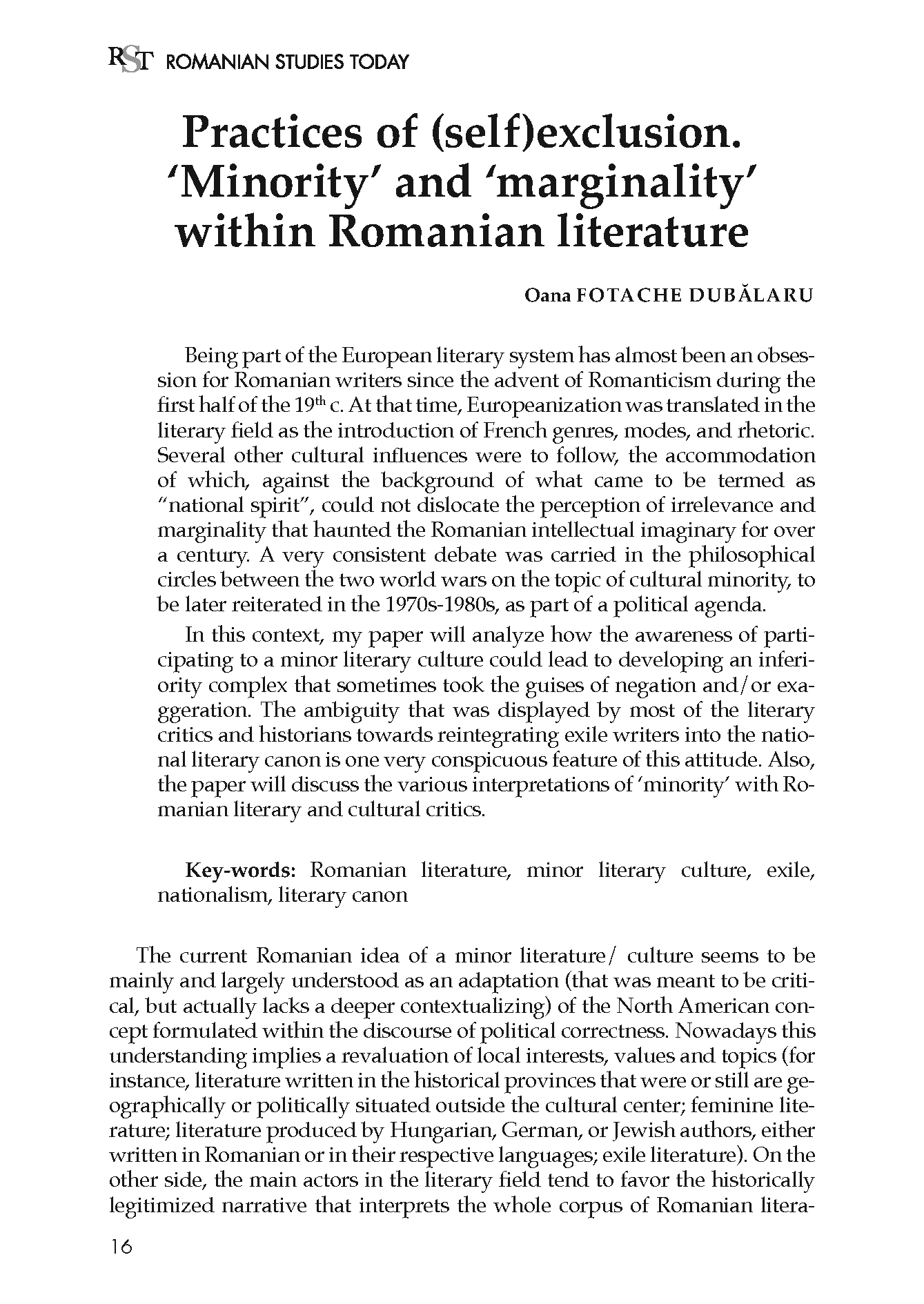Practices of (self)exclusion. ‘Minority’ and ‘marginality’ within Romanian literature
DOI:
https://doi.org/10.62229/rst/2.1/2Cuvinte cheie:
Romanian literature, minor literary culture, exile, nationalism, literary canonRezumat
Being part of the European literary system has almost been an obsession for Romanian writers since the advent of Romanticism during the first half of the 19th c. At that time, Europeanization was translated in the literary field as the introduction of French genres, modes, and rhetoric. Several other cultural influences were to follow, the accommodation of which, against the background of what came to be termed as “national spirit”, could not dislocate the perception of irrelevance and marginality that haunted the Romanian intellectual imaginary for over a century. A very consistent debate was carried in the philosophical circles between the two world wars on the topic of cultural minority, to be later reiterated in the 1970s-1980s, as part of a political agenda.
In this context, my paper will analyze how the awareness of participating to a minor literary culture could lead to developing an inferiority complex that sometimes took the guises of negation and/or exaggeration. The ambiguity that was displayed by most of the literary critics and historians towards reintegrating exile writers into the national
literary canon is one very conspicuous feature of this attitude. Also, the paper will discuss the various interpretations of ‘minority’ with Romanian literary and cultural critics.




